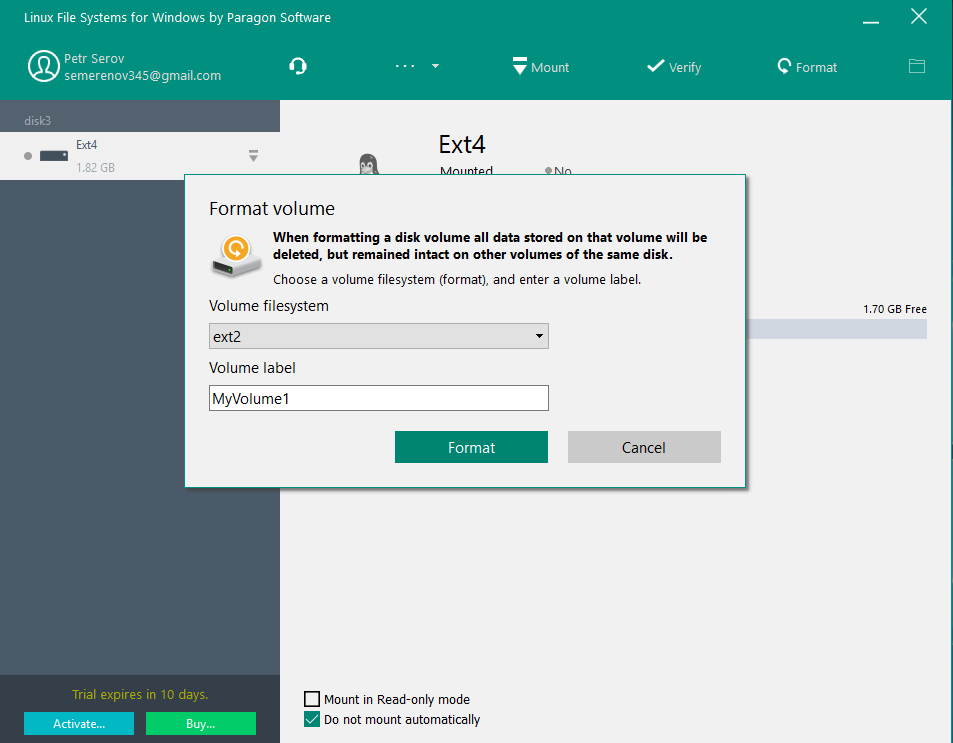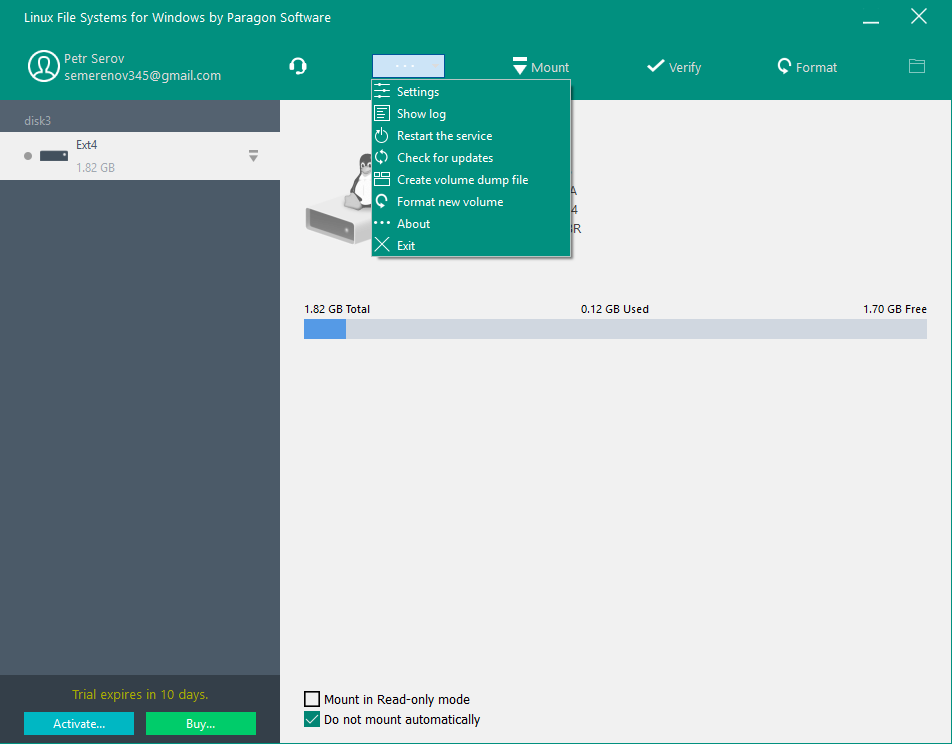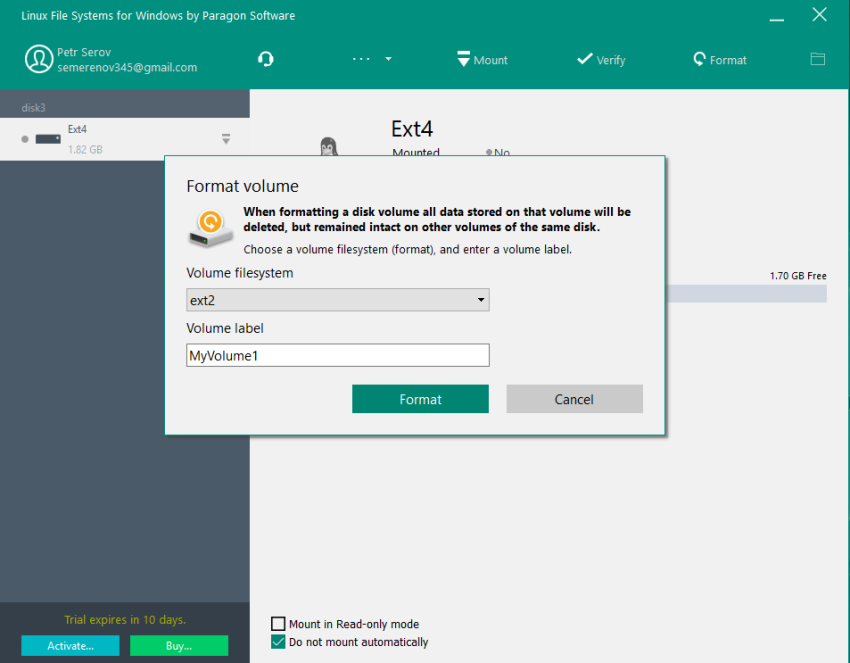It looks like some of our users have encountered an error code with the Windows Installable File System SDK. This problem can arise for several reasons. We will talk about this below.
Approved: Fortect
Installable File System (IFS) is a file system API in MS-DOS / PC DOS 4.x, IBM OS / 2, and Microsoft Windows that allows the operating system to recognize and load drivers for system files.
RxFillAndInstallFastIoDispatch fills the fast I / O dispatch vector to be set with the normal dispatch vector toI / O and must be the same as the target driver associated with the passed peripheral.
Selecting __RxSynchronizeBlockingOperations synchronizes I / O requests with the old work queue.
_RxLog uses a string construct and a variable number of parameters and creates an output string that will be logged like any I / O error log entry when logging is enabled.
The CcCanIWrite routine determines whether all callers can write to the cached file.
The CcCoherencyFlushAndPurgeCache routine clears and / or deletes a specific cache to maintain cache consistency.
The CcCopyRead subroutine copies data from the cached history to the user buffer.
Normal CcCopyReadEx copies data from a cached file to a user buffer. The I / O byte for counting operations is charged to the output stream itself.
The CcCopyWrite routine copies the user buffer to each cached file during data processing.
The CcCopyWriteEx subroutine copies data through a custom buffer to a cached directory. The I / O byte for performance calculation is billed to the sending stream.
The CcCopyWriteWontFlush macro determines whether the amount of data to be copied within CcCopyWrite is small enough that it does not immediately flush CcCopyWrite to the hard drive, regardless of whether it is called or not if Wait is set to FALSE.
The CcDeferWrite routine delays writing to a specific cached file.
The CcFastCopyRead routine performs a large fast copy operation from a music file cached in a memory buffer.
The CcFastCopyWrite routine performs a fast copy-write operation for each cached file due to the presence of a buffer in memory.
CcFlushCache periodicesky flushes all or even part of the cached file on the hard drive.
The CcGetDirtyPages subroutine looks for sloppy text in all files that match a given great log descriptor.
For a pointer that is just a sticky buffer control block (BCB) for a file, the ccgetfileobjectfrombcb routine returns a nice pointer to a file object, which is typically used by the cache manager for your file.
For a pointer to a section topic pointer for a cached file, CcGetFileObjectFromSectionPtrs returns a pointer to an info object that the cache manager creates for the file.
If an index is passed to the SECTION_OBJECT_POINTERS structure for a new cached file, the CcGetFileObjectFromSectionPtrsRef procedure returns an indication of the To-File object that is returned by the memory cache. cached file.

The CcGetFlastedValidData subroutine determines how many cached files were flushed successfullyHard disk.
File systems call the CcInitializeCacheMap program daily to cache the file.
The CcIsThereDirtyData policy determines whether a mounted volume contains a file of the type that contains modified data that is used to store the system cache.
The CcIsThereDirtyDataEx routine determines if the volume contains modified data files in the system cache.
The CcMapData subroutine assigns a specific byte scale of a cached file to an in-memory barrier.
The ccmdlreadcomplete subroutine releases the most important memory descriptor lists (MDLs) generated by CcMdlRead for the cached file.
The CcMdlWriteAbort training plan publishes memory descriptor lists (MDLs) that were created by calling CcPrepareMdlWrite earlier.
The CcMdlWriteComplete routine frees the memory descriptor lists (mdl) generated by CcPrepareMdlWrite for the cached file.
Routine CcPinMappedDatafixes the required byte range of the cached file.
The CcPinRead subroutine pins the specified range of bytes from the cached file and reads our own pinned data into a buffer in memory.
The CcPrepareMdlWrite routine provides direct access that caches the file’s memory so that the caller will write the data to the file.

The CcPreparePinWrite routine repairs the specified range of bytes of the cached file for write access.
The CcPurgeCacheSection subroutine removes or removes all components of the cached file from the main cache.
The CcRemapBcb subroutine sets aside extra time for the Barrier Control Block (BCB) to help you retrieve it through multiple calls that actually do additional allocations and detachments.
The CcRepinBcb standard sets a buffer control block (BCB) for some extra time to prevent it from actually being freedThat is, on a subsequent call to CcUnpinData.
CcScheduleReadAhead performs read-ahead (also known as lazy read) on a cached file. CcScheduleReadAhead should never be called directly. Instead, call the CcReadAhead macro.
CcScheduleReadAheadEx performs a read ahead (also called “lazy read”) procedure available to the cached file. The I / O byte is calculated to count the operations that assist the sending stream.
Go to the CcSetAdditionalCacheAttributes calendar to access the cached file.
Where to find file system drivers in WDK?
This area of the WDK provides conceptual information that is identical to file systems and filtering software (minifilters). Reference pages describing the user interfaces that your driver can implement or call can be found in the Filesystem Programming Reference. File gadgets in Windows are implemented as file action drivers that run on the storage system.
Call this procedure CcSetAdditionalCacheAttributesEx to improve caching performance for the cached file.
The CcSetBcbOwnerPointer method sets the stream owner pointer for the sticky buffer control block (BCB).
Approved: Fortect
Fortect is the world's most popular and effective PC repair tool. It is trusted by millions of people to keep their systems running fast, smooth, and error-free. With its simple user interface and powerful scanning engine, Fortect quickly finds and fixes a broad range of Windows problems - from system instability and security issues to memory management and performance bottlenecks.

The CcSetDirtyPageThreshold routine sets one patience per file.dirty page for a cached file.
The helpful CcSetDirtyPinnedData marks a Buffer Mastery Block (BCB) for a pinned buffer whose data has changed as dirty.
The CcSetFileSizes routine improves the cache display and section object when the cached file appears to have changed.
What is the Installable File System in MS DOS?
The file system to be installed. The Installable File System (IFS) is likely to be a file system API in MS-DOS / PC DOS 4.x, IBM OS / 2, and Microsoft Windows that will allow the operating system to discover and provide drivers for these file systems.
The CcSetLogHandleForFile subroutine defines the protocol for processing the file.
CcSetReadAheadGranularity sets the read-ahead granularity of a cached file.
The CcUninitializeCacheMap routine stops caching to make the file cached.


